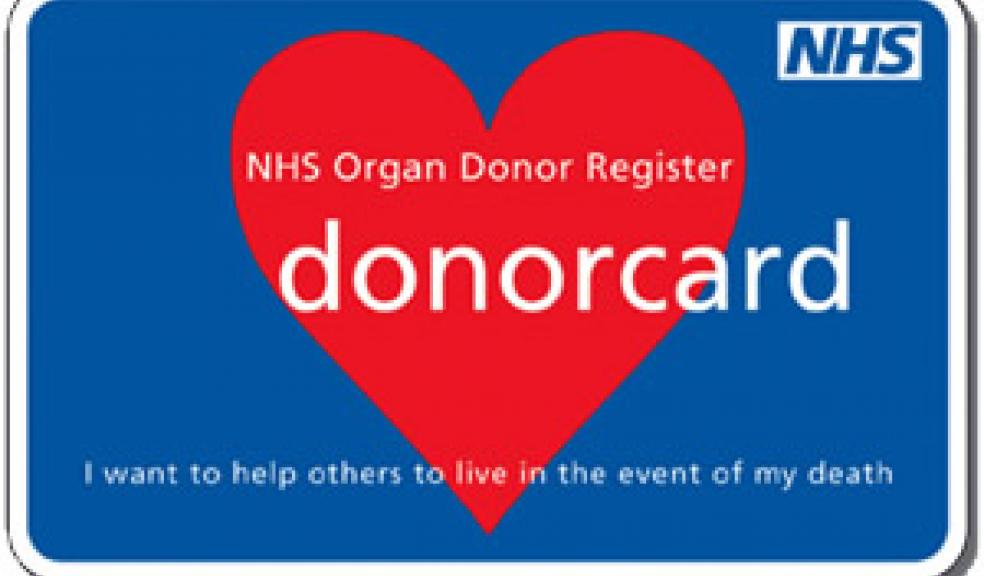
Ground breaking 50% increase in organ donors
More than 3,100 lives were transformed by deceased donors in the last 12 months as the NHS hit the 50% increase in deceased organ donation, the challenge set by the Organ Donation Taskforce in 2008.
The figures have been announced by the NHS Blood and Transplant (NHSBT) service.
"This is an outstanding achievement that few thought possible at the time this ambition was set. It is the result of the hard work and dedication of staff in hospitals and communities across the country," Bill Fullagar, NHS Blood and Transplant Chairman, said today, announcing the increase.
"We must also share our heartfelt thanks with every family who, at a great time of sadness, supported their loves one's wish to donate their organs and transform the lives of up to nine other people."
The number of deceased organ donors across the UK in 2012/13 hit 1212, representing a 50% increase since 2007/08 when the four UK governments accepted the recommendations of the 2008 Organ Donation Taskforce. There had been almost no increase in the number of deceased donors over the previous decade.
Dr Paul Murphy, an intensive care consultant in Leeds and NHS Blood and Transplant's national lead for organ donation, said: "Delivering the 50% increase is a landmark event in donation and transplantation for the UK. It is testament to the changes we have made at every level in hospitals to deliver this, to the commitment of critical care and emergency department staff to donation, and most of all to the generosity of donors and their families. But we can and must do more, because patients continue to die needlessly waiting for an organ transplant.
"Now we have the foundation to push on and create a donation and transplantation service that we can be proud of. Too many families continue to say no, sometimes even overturning their loved one's commitment to donate after death. For instance, in 2011/12 alone 125 families overruled the individual's intention, recorded on the NHS Organ Donor Register, to become an organ donor. This is often because they were unaware that this was what they wanted and found it difficult to come to terms with at such an awful time of loss."
The increase in donated organs has led to a 30.5% boost in the number of people receiving a life saving or enhancing organ transplant in the last five years. Professor Anthony Warrens, Professor of Renal Transplantation Medicine at Barts and The London and President of the British Transplantation Society said: "The professional transplant community is delighted that the target set by the 2008 Organ Donor Taskforce has been met. We salute the enormous effort of large numbers of people and the determined leadership given by NHS Blood and Transplant which has made this happen. There can be few greater achievements than to have given life to those who were on the verge of death but that is the reality of this achievement. Data show that an individual who donates his or her organs after death gives the recipients an aggregate of an additional 56 years of life. And despite the sadness of the moment, this usually becomes a major comfort to bereaved families as time passes."
Since the Organ Donation Taskforce published its fourteen recommendations five years ago, new measures have been introduced by NHS Blood and Transplant to ensure that the 50% increase could be achieved. These included:
- Employing a network of 250 specialist nurses in organ donation who support families at a difficult time to consider organ donation
- Funding the appointment of a named clinical lead and a Donation Committee in each hospital or Trust across the UK to promote donation and ensure every potential donor is identified
- Creating specialist organ retrieval teams to facilitate donation whenever and wherever it may happen every day of the year
- Promoting donation and the need for society and individuals to commit to become organ donors through hard-hitting public awareness campaigns.
Sally Johnson, NHS Blood and Transplant's Director of Organ Donation and Transplantation, commented:
"Although I am delighted that we have made such big advances in the UK, we can and must do more. We need a transformation in donor and family consent to organ donation because the UK's family refusal rate remains one of the highest in Europe. Without that, there is only a limited amount more the NHS can do to offer further hope to those on the waiting list for an organ transplant."
NHSBT has consulted widely on a new strategy to be launched in the summer which will build on the recommendations of the original Organ Donor Taskforce and set new challenges to help the three people a day who are still dying due to lack of suitable available organs.











